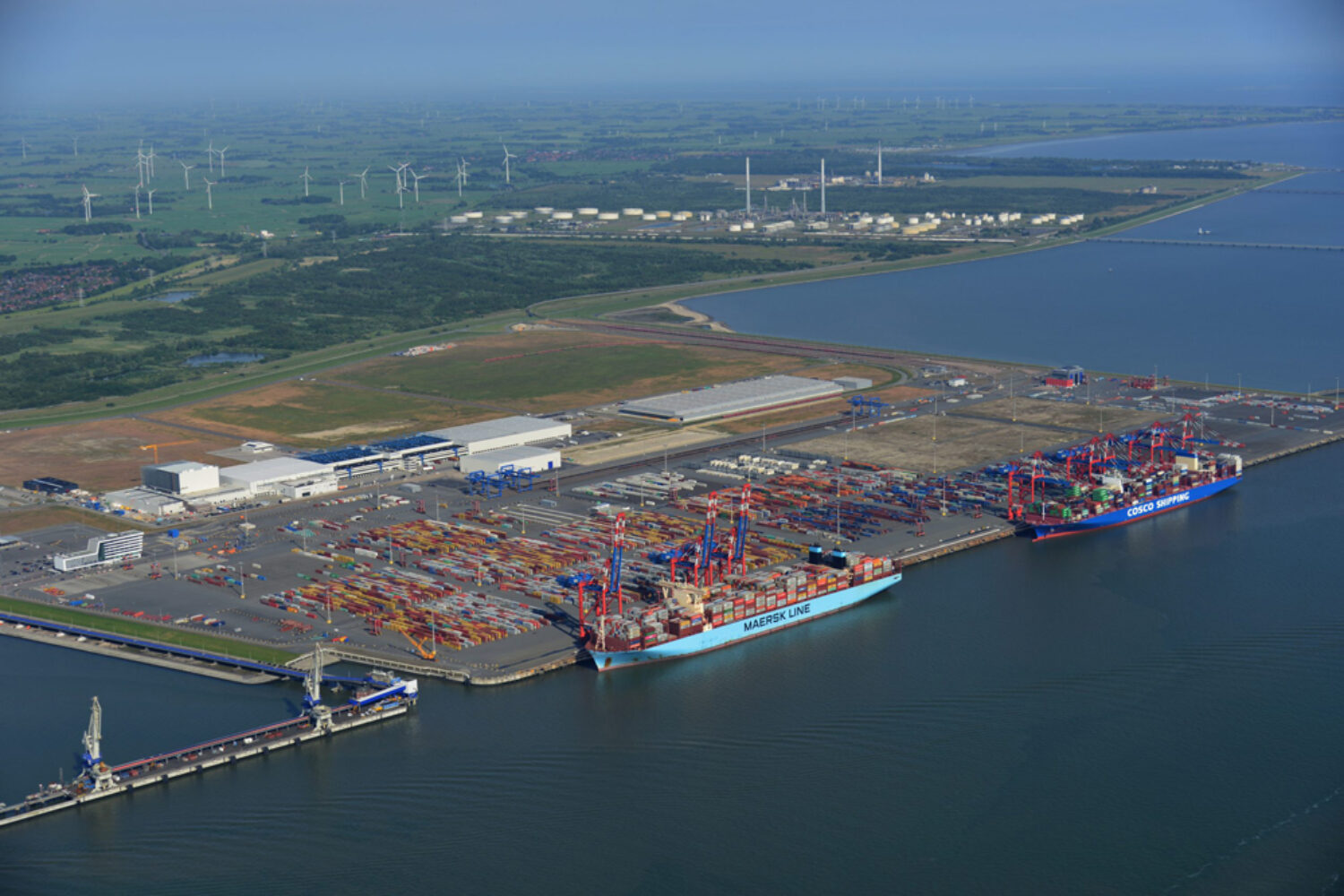The container terminals in Bremerhaven and Hamburg have reported significant losses. However, Wilhelmshaven has been hit even harder with a decline of 20%.
Only 412,000 TEU were handled at the Jade Weser Port in Wilhelmshaven in the first nine months, around a fifth less than at the same time last year. This is according to the quarterly figures of the Eurokai Group, which holds a 50% stake in the terminal operator Eurogate. [ds_preview]
The terminal in Wilhelmshaven has been jointly operated by the Eurogate Group and the Hamburg shipping company Hapag-Lloyd since April 2022, which replaced the previous shareholder APM Terminals. Since then, a Far East service has been calling at the Jade port instead of Hamburg as before.
Wilhelmshaven does not (yet) benefit from Hapag-Lloyd
Contrary to hopes, the new alliance has not yet been able to ensure an upturn in container handling, rather the opposite. A year ago, 518,000 TEU crossed the quays. Following the withdrawal of its terminal sister, Maersk is likely to have redirected volumes to other locations.
Eurogate’s other two German locations have also suffered considerable volume losses, but to a lesser extent. The terminals in Bremerhaven handled a good 3 million TEU (-12%), in Hamburg the figure was 1.4 million TEU (-11.4%).
As the Italian Salerno (255,746 TEU, +13.1%) and the Moroccan Tangier (1.9 million TEU, +3.5%) handled even more volume, the decline for the entire group of 8.2 million TEU was “only” minus 8.7%. Eurokai cites low demand, inflation and the slowdown in China’s economic performance as the reasons for this.













